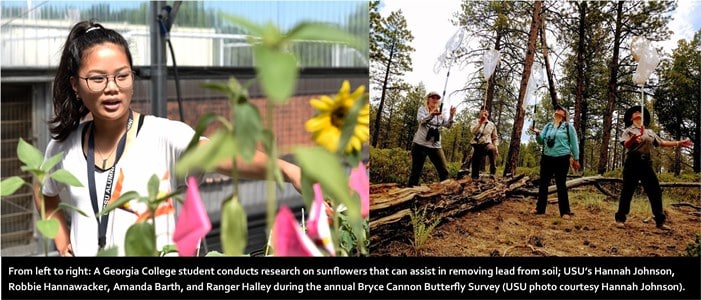
Dominick J. Casadonte Jr., Minnie Stevens Piper Professor in the Department of Chemistry and Biochemistry at Texas Tech University in Lubbock, has been selected as the 2021 Council on Undergraduate Research-Goldwater Scholars Faculty Mentor Awardee. The award consists of a plaque and $5,000 for the awardee’s research program and/or undergraduate researchers.
Casadonte was honored for his achievements in mentoring nearly 90 undergraduates and 16 high school students in summer research programs. Casadonte, who specializes in inorganic and materials chemistry, earned his BS in chemistry with honors at Case Western Reserve University, and his MS in physical chemistry and PhD in inorganic chemistry at Purdue University. He completed his postdoctoral work at the University of Illinois.
“The Goldwater Foundation is pleased to join with CUR in recognizing exemplary mentors of Goldwater Scholars,” said John Mateja, president of the Goldwater Scholarship Foundation. “Dr. Casadonte’s record of mentoring Goldwater awardees includes seven Scholars and two honorable mentions. In addition, he has assisted 14 students with their scholarship applications and served on Texas Tech’s Goldwater Selection Committee for over 25 years. Most importantly, his work with students changes their lives when he brings them into his laboratory. One of his students said it best when she said that Dr. Casadonte ‘allowed me to uncover my desire to pursue a research career and without his encouragement, I may have never discovered my passion.’”
Said Lindsay Currie, CUR’s executive officer, “Dr. Casadonte exemplifies the finest in undergraduate research mentors in tailoring his approach to individual student needs, promoting independent thought, and nurturing student inquiry and resilience in the face of research setbacks. He not only provides a solid foundation for students as they pursue graduate/professional studies or careers in industry but also inspires his colleagues in their work with students.”
Said Lawrence Schovanec, president of Texas Tech, “Throughout his career, Dom Casadonte has impacted the academic and personal lives of so many students. He’s an exemplary teacher and selfless mentor, and his notable contributions to the success of our students in and out of the classroom can’t be overstated. Dom exemplifies the commitment of Texas Tech University to students, and we are proud of him for receiving this well-deserved recognition.”
Said Casadonte, “It is a real honor to be selected as the 2021 CUR-Goldwater Scholars Faculty Mentor Awardee. The Goldwater Scholars are some of the finest undergraduate researchers in the country. It has been an exceptional privilege to have some of them in my laboratory and to see the beginnings of what I believe are truly remarkable careers in the STEM disciplines. The Council on Undergraduate Research and the Barry Goldwater Scholarship and Excellence in Education Foundation have done an excellent job in promoting young scientists and providing them with opportunities and the tools for the development of their professional lives. I am humbled to have had the chance to be a mentor to some of these outstanding students at this point in their journey.”






